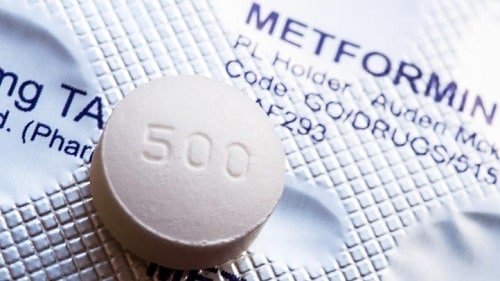What is Metformin?
Metformin is a type of oral hypoglycemic agent commonly used for treating Type II diabetes. In fact, it is one of the most widely used drugs around the world and the most frequently prescribed drug for the treatment of Type II diabetes.
While metformin medication is generally safe and well-tolerated, patients may occasionally experience minor side effects. This includes upset stomach, nausea, and diarrhea. However, most of these effects are self-limiting and will eventually resolve themselves. The most serious side effect that metformin could cause is lactic acidosis (the accumulation of lactic acid in the blood), which rarely occurs.
Does Metformin cause hypoglycemia?
The short answer is that it can. As with most antihyperglycemic agents, metformin has a risk of causing low blood glucose. However, the risk is lower compared to other medications for diabetes type 2, such as sulfonylureas. Sulfonylureas primarily exert its blood-sugar-lowering effects by stimulating the release of insulin. Acting through a different mechanism from sulfonylureas, metformin reduces the blood sugar level by enhancing the body’s response to insulin. This medication has no effects on insulin production; therefore, it is less likely to cause hypoglycemia.
When would it cause hypoglycemia?
Metformin alone is unlikely to cause low blood sugar. However, hypoglycemia may occur when the drug is used in the presence of certain risk factors, such as alcohol consumption, missed or delayed meals, nausea and vomiting (which affects the ability to eat) and the use of certain medications. In particular, concomitant use of metformin and another diabetes drug significantly increases the risk of hypoglycemia.
Some of the common hypoglycemic symptoms are:
- unusual weakness or tiredness,
- slurred speech,
- shakiness,
- restless sleep,
- nightmares,
- nervousness,
- nausea,
- persistent headache,
- fast heartbeat,
- excessive hunger,
- drowsiness,
- trouble with thinking,
- pale and cold skin,
- confusion,
- cold sweats,
- blurred vision,
- behavior change akin to being drunk,
- anxiety.
Keep in mind that the symptoms of hypoglycemia can vary from patient to patient. In severe cases, patients may become unconscious. Hypoglycemia should be treated promptly before this occurs.
How to treat hypoglycemia
When there are hypoglycemic symptoms, patients should drink sugar dissolved in water, non-diet soft drinks, and fruit juice. Alternatively, patients may eat sugar cubes, honey, corn syrup, and glucose gel or tablets. In emergency situations, glucagon can be used to treat severe symptoms, such as unconsciousness and convulsions (seizures). When using metformin, it is recommended to have a glucagon kit (along with a needle and syringe) handy. Apart from the patient himself, the family of the patient should also be taught how to use the glucagon kit.
In order to prevent low blood glucose, patients are advised to take their drugs as scheduled. At the same time, patients should exercise regularly and eat a balanced diet. Perhaps more importantly, patients should tell the doctor about all the medications that they are using.
You can check Metformin cost at canadianinsulin.com!
Doctor’s Recommendation
When on metformin, abstain from alcohol due to excessive inhibition of gluconeogenesis. Furthermore, standard hypoglycemia protocols apply, which include hourly finger pricks for glucose, continuous glucose monitor for most of the day, having emergency dextrose tablets within arms reach, having a glucagon pen with family members being well-trained in its use, having a diabetic medical bracelet in case loss of consciousness in the street. Finally, adopting a ketogenic diet will likely eliminate the need for more risky add-on medications such as sulfonylureas, as metformin monotherapy would likely adequately ameliorate the hyperglycemia.



